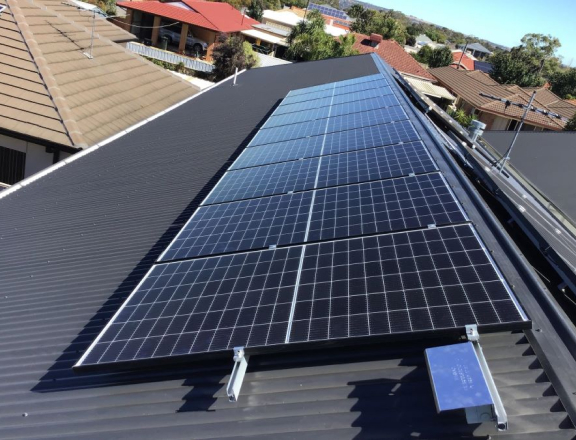In today’s evolving energy landscape, businesses across various industries are turning to commercial solar panel systems as a sustainable and cost-effective solution to power their operations. As energy prices rise and environmental regulations tighten, investing in solar energy offers more than just environmental advantages—it can significantly improve your company’s bottom line. In this article, we will delve into the financial benefits of commercial solar panel systems, shedding light on how they can help businesses save money, enhance energy independence, and leverage government incentives.
Reduced Energy Costs with Solar Power
One of the most obvious financial benefits of commercial solar panels is the reduction in energy costs. Solar panels allow businesses to generate their own electricity, reducing the need to purchase energy from the grid. In many cases, the savings from lower energy bills can cover the initial investment in solar technology within just a few years.
Key Points:
- Solar energy production reduces monthly electricity bills.
- Solar panels offer a hedge against future energy price increases.
- After the payback period, energy generated from solar becomes essentially free.
In high-consumption industries like manufacturing or data centers, the savings can be even more substantial. By investing in a commercial solar panel system, businesses lock in lower energy costs and protect themselves from the volatility of traditional energy markets.
Attractive Return on Investment (ROI)
While the upfront cost of installing commercial solar systems may seem significant, businesses can expect an attractive return on investment over the system’s lifespan, which typically ranges from 25 to 30 years. Depending on factors such as location, size of the solar installation, and energy consumption, many companies see a payback period of five to seven years.
Why Solar Offers High ROI:
- Decreased energy costs over decades.
- Government tax incentives (e.g., investment tax credits, grants).
- Solar Renewable Energy Certificates (SRECs) and feed-in tariffs, which provide businesses with additional income streams by selling excess energy back to the grid.
With commercial solar installations, the long-term ROI often exceeds what traditional investments in equipment or real estate could yield, making solar one of the best investments a business can make.
Tax Credits and Financial Incentives
To encourage the adoption of renewable energy, governments worldwide offer a variety of financial incentives. In many regions, businesses that invest in commercial solar panel systems can take advantage of tax breaks, grants, and subsidies, making the financial benefits even more compelling.
Some of the most valuable financial incentives include:
- Investment Tax Credit (ITC): A federal tax credit in many countries that allows businesses to deduct a significant percentage (e.g., 26% in the U.S.) of the solar installation cost from their taxes.
- Accelerated Depreciation: In some regions, businesses can depreciate the cost of solar equipment faster, reducing tax liability.
- Local and Regional Rebates: Many local utilities offer rebates for businesses that install solar, further reducing the upfront cost.
These incentives not only lower the initial investment but also accelerate the payback period, allowing businesses to see financial returns sooner.
Increased Property Value
Commercial buildings equipped with solar energy systems often experience an increase in property value. This is because solar installations significantly reduce operational costs, making the property more attractive to potential buyers or tenants.
Financial Gains from Property Value Enhancement:
- Solar-powered buildings are more marketable due to lower operating costs.
- Properties with renewable energy systems tend to sell or lease at a premium.
- Energy-efficient buildings command higher market prices in regions that prioritize sustainability.
For businesses that own their facilities, adding solar panels can be a smart investment in the long-term value of their property portfolio.
Energy Independence and Resilience
With commercial solar panel systems, businesses can reduce their reliance on the fluctuating prices and availability of grid energy. Solar energy provides energy independence, especially when combined with energy storage solutions like solar batteries. This resilience can protect businesses from power outages and supply chain disruptions, which can be especially valuable for industries where downtime leads to significant financial losses.
Key Benefits of Energy Independence:
- Lower exposure to energy price volatility.
- Improved operational continuity in case of grid failures.
- Reduced reliance on fossil fuels and unpredictable energy markets.
By securing an independent energy source, businesses not only save money but also strengthen their overall operational resilience.
Minimal Maintenance and Long-Term Savings
Once installed, commercial solar panel systems require minimal maintenance. Solar technology is designed for durability, with most systems requiring only occasional cleaning and inspection to maintain peak efficiency. This low-maintenance nature contributes to the long-term financial benefits of solar.
Benefits of Low Maintenance Costs:
- Reduced ongoing operational expenses.
- Extended lifespan of solar panels (25-30 years) without significant degradation.
- Few repair or replacement costs, as most solar systems come with robust warranties.
Compared to other forms of energy infrastructure, solar panels provide one of the most cost-effective, low-maintenance energy solutions available, allowing businesses to maximize their return on investment over the long term.
A 6.6 kW solar system is ideal for average-sized homes, providing sufficient energy to meet daily electricity needs.
